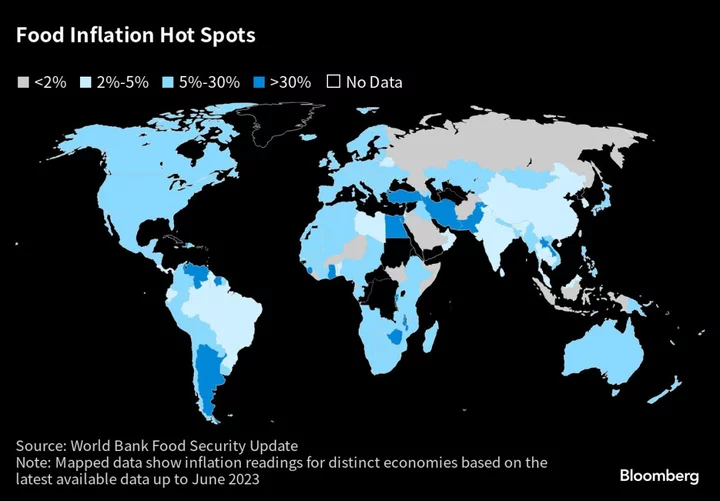Overall inflation rates may be slowing across Europe, but the price of ingredients to make traditional dishes in France and Spain highlights how the worst cost-of-living crisis in a generation is still raging.
Bloomberg’s custom index showed French households had to spend 8.4% more last month to prepare a coq au vin than a year earlier. Data from the country’s National Statistics Office and the Ministry of Agriculture and Nutrition put the total cost at €19.4 ($21.3).
The price of poultry, which is the most expensive ingredient in the dish, rose 6.4%, while butter was up 16.5% from July last year.
That contrasts with headline inflation of 4.3% in the euro area’s second-biggest economy, based on the national measure for consumer-price growth.
A separate Bloomberg gauge showed that making paella, Spain’s national dish, was 15.1% more expensive in July than a year ago due to an almost 40% jump in the cost of olive oil, according to data from the National Statistics Institute.
The country has been experiencing a devastating drought that has more than halved production.
Headline inflation in Spain is among the lowest in the euro zone, easing earlier last year after the government set a cap on surging power prices. As favorable base effects start to fade in the second half of 2023, inflation will likely pick up to average 3.2% this year, according to the Bank of Spain.
The cost of olive oil is also impacting Italy, where Bloomberg’s Pizza Margherita Index surged 13.5% this month.
This story was produced with the assistance of Bloomberg Automation.
Author: Alessandra Migliaccio, Mark Evans and Alonso Soto









